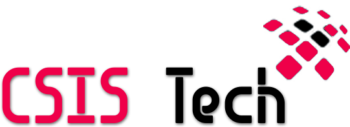Psychology of privacy- Understanding the user mindset in encrypted note apps

Data breaches and surveillance capitalism dominating tech headlines, and more people are looking for ways to protect their personal information. This growing desire for privacy extends to taking notes as well. A new crop of encrypted note-taking apps such as Standard Notes, Joplin, and Obsidian have arrived to meet this need. They enable private journaling, task management, and personal knowledge management (PKM) while ensuring user data stays safe using end-to-end encryption. But why this urge for privacy in the first place to personal note archives? What core psychological needs are encrypted apps tapping into? And how might the design and user experience of these tools continue evolving to align with emergent privacy mindsets?
Privacy paradox
Acknowledge the obvious – heightened interest in encrypted notes stems largely from very rational worries about data mining and hacking. Between corporate surveillance and state-sponsored snooping, there are legitimate reasons to lock down sensitive personal information using strong encryption. However, the classic economic theory around privacy doesn’t explain what’s happening here psychologically. According to early thinking on the topic, people should willingly surrender privacy if it means access to helpful services, efficiency, or human connections. Yet in reality, we balk at this notion and seek ever greater privacy despite the conveniences technology offers.
Need for confessional space
As author Michael Harris points out in his book The End of Absence, analog journals expanded wildly in popularity alongside the early internet back in the 1990s. This tracked the rise of email, search engines, and emerging digital networks. Harris suggests that rather than embracing radical transparency as some predicted, people felt an increased need for confidential self-expression off the record as the internet took off. Paper journals provided a sanctuary for introspection away from judging eyes. Prevalent social media channels only amplify similar demands for secret spaces to unpack thoughts and emotions without concern for appearances, likes, or censorship. Encrypted notes now provide confidentiality online that paper once delivered offline. Without that outlet for confession, repression grows while mental health and quality relationships decline.
Owning our content
what is privnote? The motivation seems to be reclaiming ownership over personal data from large platforms. Customers feel increasingly uneasy with tech giants mining intimate writings for profit or power. When journaling and note-taking move digital, sensitive disclosures become corporate IP rather than private possessions or public domain creations. Encrypted apps flip that script ethically and legally to restore personal agency around information that feels deeply our own. They recognize dimensions like private knowledge, identity, and self-expression should remain under personal control regardless of the medium. The blockchain concept of self-sovereign data builds on similar logic. Once experienced, losing ownership feels violated and oppressive given the centrality of notes to memory, creativity, and conscience.
Psychological safety
As more social and professional engagement moves online, the ability to experiment safely with new ideas becomes constrained. Every public utterance now carries reputational risk and scrutiny when previously we had arenas like dinner party chatter or isolated journaling to debate half-baked notions or play devil’s advocate. Without playgrounds to build psychological safety, creativity, and change both individual and societal stagnate. Encrypted personal notes carve out areas for intellectual risk-taking and tinkering off the record comparable to a workshop, studio, or therapist’s office. Safety breeds courage.











